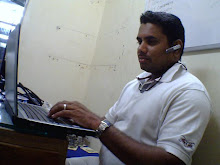BPO—TRAC
Top Five Partnership Myths
ExecTech consultants are constantly running into false ideas about partnerships (or corporations with doctor shareholders, same thing). These myths keep practice owners held down in one-man-bands when they should be conducting orchestras.
1. “All partners share equal ownership.” This myth says that your partner owns 50% and you own 50%. If a third partner joins in, you each own 33.33% and so on.
The fact is, each partner can have a different portion of ownership. A partner is a partner, even if he or she owns 0.01% and you own 99.99%. You can form a partnership with an individual, corporation or another partnership. You are restricted by nothing except your imagination.
2. “Each partner deserves equal control” and “A partnership is managed best by democratic process.” These myths results in endless meetings, disagreements and anger.
Fifty-fifty partners with equal authority have more conflicts than any other type of structure.
Just as only one person can drive a car, only one person can be in charge of the practice. If two or more try to drive the car or run the practice, you crash.
To succeed, one partner must assume the day-to-day management duties and have enough power to get the job done. The managing partner position should be held by the partner who can increase the number of satisfied patients, keep staff morale high and end with the most profit possible.
3. “All partners deserve equal pay.” Poor producers insist on equal pay so they can ride on the shoulders of high producers. High producers then either get angry at this unfair arrangement or reduce their productivity.
A sole owner feasts or starves based on his or her hard work and the success of the practice. The same principle applies to a partnership . . . if it is going to endure.
Partner pay must be based on individual contribution to the partnership's success. Forming the partnership and managing the partnership are, obviously, significant contributions.
4. “Every associate becomes a partner” or “It's impossible to find the right partner” are equally wrong.
You can make every associate into a minor partner, if you like. But make it a reward, not a right. Form partnerships with those who produce well; who give more to the practice than they take. The wording of your associate contract is important. Include specific qualifications an associate must meet before becoming a partner. Leave yourself options to cancel the deal.
If you are at the other extreme, and believe the right partner probably does not exist, you are too picky. Your fears of selecting bad partners prevent you from enjoying the progress you deserve.
You can find a place for most good producers, if you open your mind to new arrangements and roles.
5. The most destructive myth of all: “We don't need a written agreement.” This false idea leads to life-long disputes, ruined practices and lawsuits.
Without a thorough partnership agreement in writing, a successful practice can be torn apart. One partner or all partners can lose everything.
The practice's partnership agreement must include solutions for every conceivable problem that can arise. What happens if a partner wants to leave? If a partner wants to change the agreement? If a partner is sued, disabled or dies?
By eliminating these five myths from your mind, you open the door to amazing new possibilities.
Read what one practice owner says about ExecTech partnership consulting.
Friday, April 10, 2009
Subscribe to:
Post Comments (Atom)


No comments:
Post a Comment